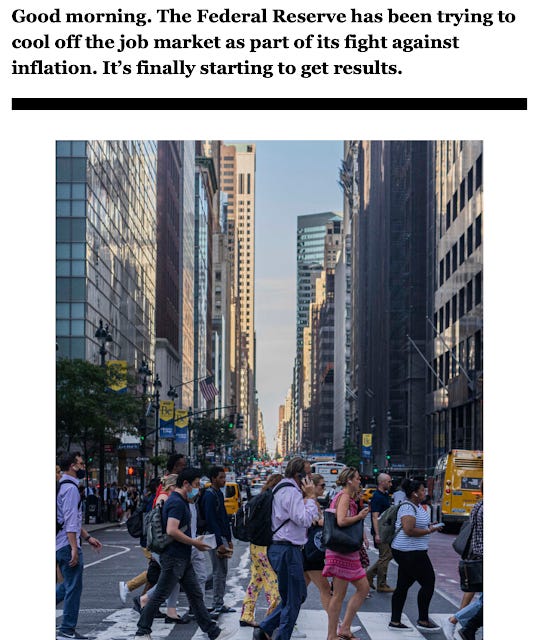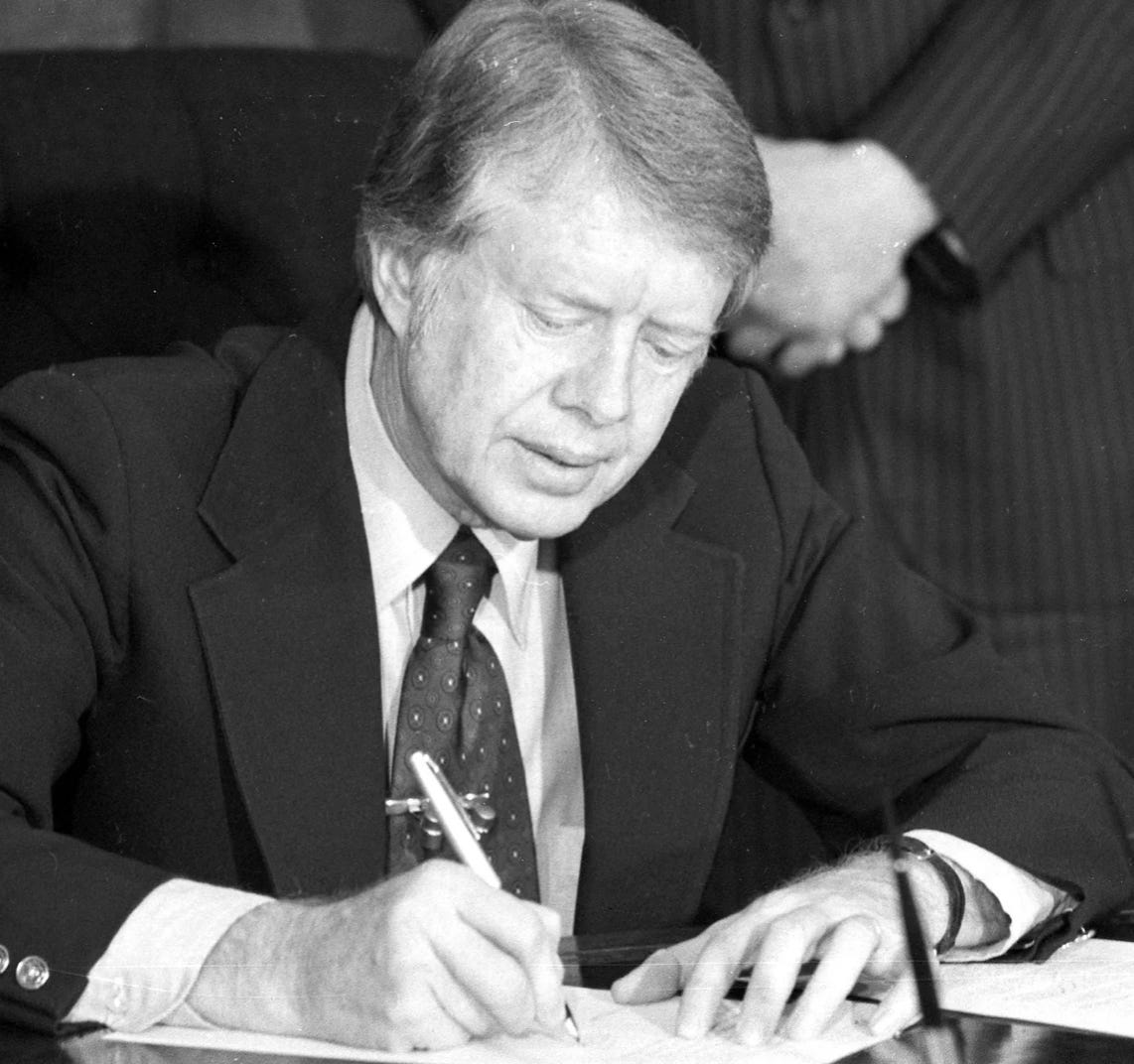Fed pain ahead. Stagflation.
The Fed has a mission. Stop inflation. Americans need to hurt.
The economy recovered from COVID. More people are working than before COVID. Unemployment is 3.5%. The rapid recovery came at the price of inflation. The Fed wants businesses to be less hopeful and potential buyers of things to be more cautious. The Fed wants layoffs. Unemployed people serve as a cautionary example to employees who may be thinking about pay raises.
We are not yet in recession. Businesses hire workers because they have customers, and they need employees to get the work done. I see help-wanted signs everywhere.
The Fed also reduces demand through the asset "wealth effect." Stock market investors lost money this year. This morning I read an 2nd quarter report for a small investment company's funds. This had to hurt to write:
The Fund1 returned about -33% in the second quarter, bringing its total decline to approximately -51% in the first half of the year. This has been the U.S. market’s worst start to a year in over a half century and, unfortunately, our losses were quite outsized during the period, largely due to our concentrated, long-term bets in growthier areas. With the vast majority of my liquid net worth invested in our funds, my extended family and I have sustained the losses in lockstep with you. I am frustrated by our returns – this is deeply unpleasant and a significant step backwards.
The investment company's owners don't want customers to bail out of the fund. The fund won't be raising fees anytime soon
The vast majority of our losses have been driven by the continued compression of multiples across the board. These prices may persist for a time, but in my view, they are not reflective of the underlying value or company prospects. If multiple compression were to cease, we would expect our returns to compound at high rates. If multiples ever begin to re-expand, we would expect these rates to be even higher.
This is an example of the triple-effect of Fed rate hikes on inflation. Anticipated profits are down so stock prices are down. Owners of stocks have less wealth, so they spend less freely. Businesses scramble to keep the customers they have, so they abandon any hope of raising prices.
There is a good reason to fear future "stagflation." The U.S. is net fossil fuel independent, but Europe is not. There is a world price for oil. OPEC just agreed to pump less oil, an accommodation to Russia's desire to squeeze Europe. Oil prices will rise. That cost will filter through everything, including gasoline. We may get a return of simultaneous inflation and stagnation. That would be miserable for Biden and Democrats--and Saudi Arabia knows it.
Biden is vulnerable here. This administration's relationship with Saudi Arabia is complicated. We like their growing friendship with Israel. We don't like their sponsorship of Islamic terror. We don't like that they murdered Jamal Khashoggi. The OPEC move is a transparent signal to U.S. domestic politics. Trump doesn't care about Khashoggi, and he likes selling U.S. weapons to the Saudis. Russia is a fellow OPEC nation, and Trump is comfortable with Russia's ambitions, while Biden is not. Trump is comfortable with autocracy. Trump is a better friend to Saudi Arabia than is Biden. Saudi Arabia returns the affection by investing $2 billion in Jared Kushner's new hedge fund. Friends help friends.
Saudi Arabia has the power to put a heavy thumb on the scales of the 2024 election and to shape U.S. policy toward Russia and Ukraine. They don't need troll farms to influence American public opinion. They likely have the power to create stagflation and high gasoline prices in the U.S. That would probably be enough to sink any Democratic candidate.





